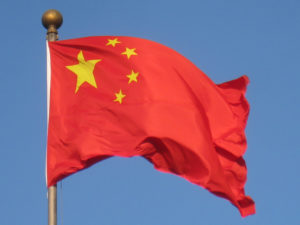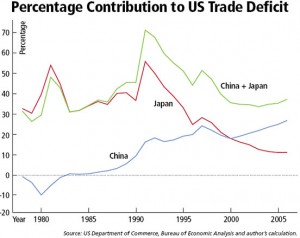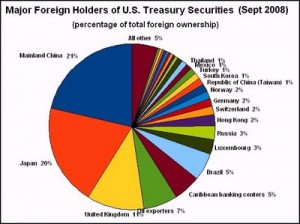“The empire, long divided, must unite; long united, must divide. Thus it has ever been.”
三国演义 ~by Luo Guangzhong
Earlier I promised to post my plan to prevent a war between the United States and China over Taiwan. I’ve traveled and met with Taiwanese diplomats. They are some of the most sophisticated operators I’ve ever encountered. Taiwan is a highly advanced technological country. Very wealthy, with a sophisticated full coverage heath care system and a vibrant democracy. Furthermore, based on the Shanghai Communique issued on February 27, 1972 by Nixon and Mao, both mainland China and the USA formally acknowledged that “all Chinese on either side of the Taiwan Strait maintain there is but one China”.
The Communique goes on to state the US side does not accept a violent solution to the unification of the two parties and the Chinese side retains the option to violence if Taiwan ever declares independence, paraphrasing here, folks. It’s been a long time since reading my Kissinger.
Conversely, I have traveled seven times to China. Here is an idea most Americans will probably never understand. China’s potential to utilize enormous amounts of soft power is profound. This is based on China’s circular view of history and that China has been invaded and ruled by foreign powers many times in its history. In each and every case China has overcome said invaders very differently than the way the Russians have. Or anyone else for that matter. Where the Russians trade space for time to husband their resources for a great counter attack and push the invader out of the country, China seduces the invader, with its ancient, deep, amazing and incredibly seductive culture. I cannot emphasize enough the depth, breadth, and tantalizing sophistication of its culture, be it material, artistic, political or spiritual. I do, after all, practice Chinese Chan Buddhism in my own life. Every time China has been invaded and completely taken over by a foreign power this strategy works. Even today we’re watching Chinese movies on Netflix. That is the use and export of soft power. And unlike America, that has only 250 years of history to draw upon its soft power, China has almost 4000 years of history to draw upon. The efficacy of Chinese soft power is not to be underestimated. It is indeed seductive.
Now the question moves to goals and intentions. And here an understanding of Chinese history can aid us in a better understanding of the present Chinese leader, Xi Jing Ping.
What are Xi Jing Ping’s true goals? Simple, he seeks membership among the greatest of Chinese emperors. The greatest of Chinese emperors are judged by a single metric: did they unify all of China? As the opening sentence of the great Chinese novel, The Romance of the Three Kingdoms, I quoted at the beginning of this essay, unification is the way the Chinese see themselves when in a golden age.
This compulsion to unify all of China is the defining source of Xi’s ambitions. And that means Taiwan. Taiwan is the last remaining province of a fully unified China. China equal to that ruled by the Qin Shih Huang Di, the very first emperor to unify all of China, or the great conqueror Han Wu Di, or Li Shimin of the mighty T’ang or Zhu Yuanzhang of the wall building Ming. It is to this rank of Chinese men that Xi aspires.
What should America do? I have spent a lot of time thinking about how to avoid a war with China that most people are certain is inevitable. They call it the “Thucydides Trap.” But, if the study of history has taught me anything it is that nothing is inevitable, contingencies matter, and human agency means the most. We may live in a complex adaptive system, but nothing, nothing is inevitable. Therefore, America must find a way tone down its arrogance and find a way to peacefully unite Taiwan with China.
Here is how I would do it if I were president.
First, I would engage in a series of CBM’s (Confidence Building Measures in diplospeak) with Xi Jing Ping regarding our naval stance in the Straits of Taiwan. I would make it policy that no American naval ships traverse the Straits of Taiwan any longer. Then I would halt the sale of advanced weapons to Taiwan.
Second, I would begin preparing the Taiwanese to consider peaceful unification with the mainland along the lines of the British handover of Hong Kong to China in the 90s. I would make it clear that we would not consider unification unless Taiwan was allowed to keep its democracy, and democratic traditions for a minimum of 80 years. I would do this to assuage the Taiwanese about a possible authoritarian takeover of the island in the case of unification. China did one nation, two systems successfully once before. They can do it again.
Third, I would secretly engage Xi Jing Ping with the following proposal: the United States of America would fully encourage and accept the unification of Taiwan with the mainland under the following conditions. Number one, Taiwan would have three representatives on the politburo, one of which would be a power ministry, either interior, defense, or foreign affairs. My fallback position, which is my true goal of course, would be the acceptance of two politburo members from Taiwan, but I would not relent on one serving as a power minister in one of the three ministries aforementioned.
I am relatively certain that Xi and the current politburo would agree to this proposal. It would serve to put Xi in the exhalted ranks of Chinese leaders in which he craves to be included. Mos timportantly, it would not harm a single vital national interest of the United States. The Chinese might have a salient in the first island chain, that being the island of Taiwan, but the United States would still have Korea, Japan, Okinawa, and the Philippines. Not to mention the defenses in depth that the second island chain provides us in the Pacific ocean. Much less the great fortress of the third island chain of Midway, Wake and Hawaii. Defenses in depth matter much more than a salient in the first island chain.
Now, I recognize this goes against every national security intellectuals thinking. It is completely contrarian. But the more I’ve thought about it over the last few years the more I believe that is the best way to avoid general warfare between two nuclear great powers from the Straits of Malacca to the South China Sea and into the deep blue waters of the Pacific.
If you’ve read this far, and you’ve read some of my articles and most if not all of Ian’s, then you might wish to Subscribe or donate. Ian has written over 3,500 posts, and the site, and Ian, need the money to keep the shop running. So please, consider it.

 The basic truth is that the days of the Pacific being an American lake are coming to a close. China is the 800 pound gorilla. As Yang Jiechi said, “China is a big country and other countries are small countries, and that’s just a fact.”
The basic truth is that the days of the Pacific being an American lake are coming to a close. China is the 800 pound gorilla. As Yang Jiechi said, “China is a big country and other countries are small countries, and that’s just a fact.”
 Japan is going to be a lot less willing to finance US deficits and consumer spending than in the past, and economically it is going to be looking much more to other Asian nations.
Japan is going to be a lot less willing to finance US deficits and consumer spending than in the past, and economically it is going to be looking much more to other Asian nations.